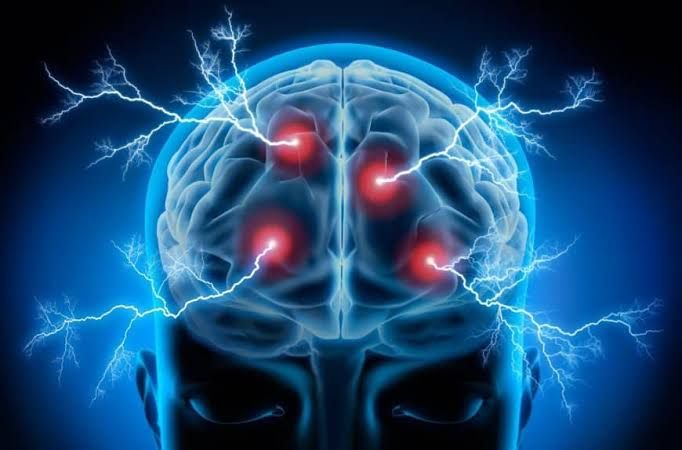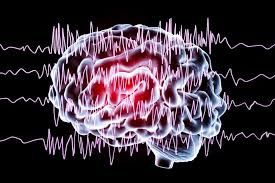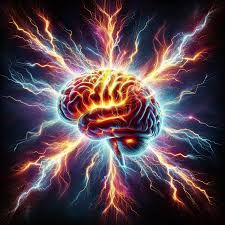Rahmanir Rahim
Assalamu Alaikum Wa Rahmatullahi Wa Barakatuhu
Dear Companions Today I want to share with you some words about the evils of killing foetuses.Welcom to this post and congratulations to all.

Epilepsy is a neurological disorder characterized by recurrent seizures, affecting approximately 50 million people worldwide. It is a serious condition that can have profound effects on individuals' lives, including social, psychological, and physical impacts. In this discussion, we will delve into the symptoms, remedies, preventive measures, and the broader impact of epilepsy on affected individuals and society.

source
Understanding Epilepsy:
Epilepsy is a disorder of the brain characterized by abnormal electrical activity, leading to seizures. Seizures can manifest in various forms, ranging from momentary lapses of awareness to severe convulsions. These seizures result from disruptions in the normal electrochemical activity of the brain, which can be caused by various factors, including genetics, brain injury, infections, or developmental disorders.

source
Symptoms of Epilepsy:
The symptoms of epilepsy can vary widely among individuals and may include:
Seizures: The hallmark symptom of epilepsy, seizures can manifest in different ways, such as convulsions, staring spells, or temporary confusion.
Loss of consciousness: Some individuals may experience a loss of awareness or consciousness during seizures.
Uncontrollable movements: Seizures may cause involuntary movements, such as jerking of limbs or repetitive motions.

source
Aura: Some individuals experience a warning sign, called an aura, before a seizure occurs. This can manifest as a strange smell, visual disturbance, or feeling of fear or déjà vu.
Remedies for Epilepsy:
While epilepsy cannot be cured, various treatment options are available to manage the condition and reduce the frequency and severity of seizures. These include:

source
Medications: Antiepileptic drugs (AEDs) are the primary treatment for epilepsy. These medications work by stabilizing electrical activity in the brain and can effectively control seizures in many individuals.
Surgery: In cases where seizures are not well-controlled with medications, surgery may be an option. Surgical procedures can involve removing the area of the brain responsible for triggering seizures or implanting devices to regulate brain activity.

source
Dietary therapy: Some individuals may benefit from dietary therapies, such as the ketogenic diet, which is high in fats and low in carbohydrates. This diet can help reduce seizure frequency in some people with epilepsy.
Lifestyle modifications: Avoiding triggers, such as lack of sleep or excessive stress, can help reduce the risk of seizures. Additionally, maintaining a healthy lifestyle, including regular exercise and a balanced diet, can contribute to overall well-being and may help manage epilepsy symptoms.
Preventive Measures:

source
While epilepsy cannot always be prevented, there are steps individuals can take to reduce their risk or minimize the impact of the condition:
Seek medical care: Individuals who experience recurrent seizures or other symptoms suggestive of epilepsy should seek medical evaluation promptly. Early diagnosis and treatment can help improve outcomes and quality of life.
Adhere to treatment: It is essential for individuals with epilepsy to take their medications as prescribed and attend regular follow-up appointments with their healthcare providers. This can help ensure optimal management of the condition and reduce the risk of complications.
Manage stress: Stress can exacerbate epilepsy symptoms in some individuals. Learning stress management techniques, such as mindfulness meditation or relaxation exercises, can help reduce stress levels and improve overall well-being.
Safety precautions: Individuals with epilepsy should take precautions to ensure their safety, such as avoiding activities that pose a risk of injury during seizures, such as swimming alone or operating heavy machinery.
Education and awareness: Educating oneself and others about epilepsy can help reduce stigma and discrimination associated with the condition. Increasing awareness can also promote early recognition of seizures and appropriate intervention.
Impact of Epilepsy:
Epilepsy can have far-reaching effects on individuals' lives, as well as on society as a whole. Some of the impacts include:
Social stigma: Despite being a neurological disorder, epilepsy is often associated with stigma and misconceptions. This can lead to social isolation, discrimination, and negative attitudes towards affected individuals.
Psychological impact: Living with epilepsy can take a toll on individuals' mental health, leading to anxiety, depression, and reduced quality of life. The fear of having seizures in public or the stigma associated with the condition can contribute to psychological distress.
Educational and employment challenges: Epilepsy can affect individuals' ability to attend school or work regularly, leading to educational and employment challenges. Discrimination in educational and workplace settings may further exacerbate these difficulties.
Financial burden: Managing epilepsy can be costly, with expenses related to medications, doctor visits, and potential hospitalizations. Additionally, individuals with epilepsy may face higher insurance premiums or difficulty obtaining coverage.
Impact on caregivers: Epilepsy not only affects the individuals diagnosed with the condition but also places a significant burden on their caregivers. Caregivers may experience stress, anxiety, and financial strain as they support their loved ones with epilepsy.
https://youtu.be/zfVkzNwnoo?si=vGJEio_w1eBqp_b
source
Epilepsy is a serious neurological disorder that can have profound effects on individuals' lives and society as a whole. Understanding the symptoms, treatment options, and preventive measures is crucial for effectively managing the condition and improving outcomes for affected individuals. By raising awareness, reducing stigma, and promoting access to care, we can work towards a world where individuals with epilepsy can live fulfilling lives free from discrimination and barriers to care.
Upvoted. Thank You for sending some of your rewards to @null. Read my last posts to make sure that BLURT burning is profitable for you. Before using this bot please make sure your account has at least 100 BP. Get more BLURT:
@ mariuszkarowski/how-to-get-automatic-upvote-from-my-accounts@ blurtbooster/blurt-booster-introduction-rules-and-guidelines-1699999662965@ nalexadre/blurt-nexus-creating-an-affiliate-account-1700008765859@ kryptodenno - win BLURT POWER delegationNote: This bot will not vote on AI-generated content